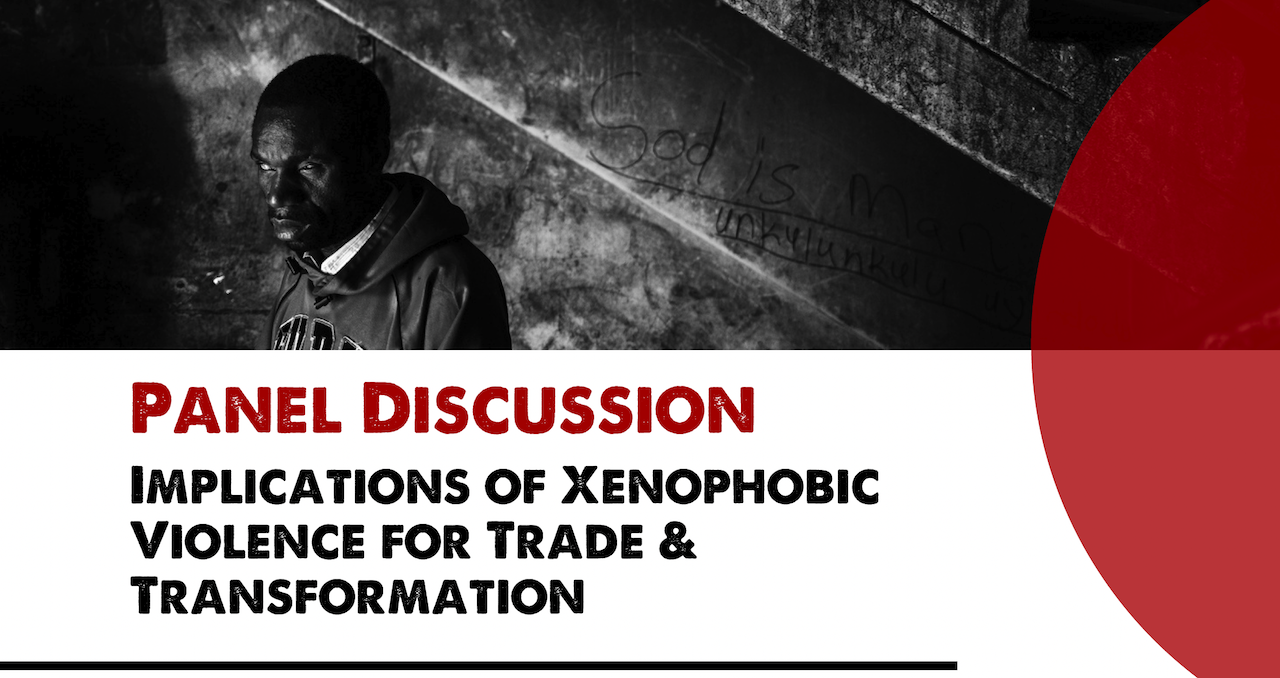Date:2 August 2022
Time:14:30-16:00(South Africa Time)
Venue: Online via Zoom, and in-person at Senate Room, 2nd Floor, East Wing, Solomon Mahlangu House, University of the Witwatersrand and Online via Zoom
Wits University’s African Centre for Migration & Society and the Wits-Oxford Mobility Governance Lab, invite you to a panel discussion reflecting on the meaning and implications of xenophobic violence for South Africa’s economic and political future.
The discussion stems from a newly released Xenowatch report: Xenophobic Violence in South Africa: An Analysis of Trends, Causal Factors and Responses. Drawing on more than a decade of original research across South Africa, the report describes xenophobic violence as an increasingly integral part of the country’s socio-economic and political landscape. Abetted by anti-immigrant attitudes, xenophobic violence is rooted in democratic deficits: threats to rule of law and constitutional credibility. It highlights that violence is distinctly spatialised, often occurring repeatedly in specific localities where economic and political competition is acute. It demonstrates that while inequality fuels popular dissatisfaction, political opportunists and entrepreneurs scapegoat and victimise immigrants and other outsiders for their own advantage.
The consequences of South Africa’s anti-outsider violence extend far beyond the immediate victims but affect lives across many townships and informal settlements. Yet while violence has long been a local matter, the forthcoming national leadership contest has seen xenophobic rhetoric and mobilisation become increasingly well-organised and national. Together these reflect a dangerous politics of localism and entitlement, a rationing of access to rights and opportunities, and a threat to prosperity and the constitutional order. It is these implications that this panel intends to explore.
Presented in a hybrid format open to a live and virtual audience, the panel will include representatives from academia, civil society, the media, and former civil servants. Over ninety minutes the discussion will consider the implications of xenophobic mobilisation for South Africa’s efforts to promote economic inclusion, democratic institutions, and security for all its residents. It will explore implications for domestic and regional trade, security, and political accountability.
PANELISTS:
- Mavuso Msimang (Former Corruption Watch Chairperson)
- Siphelele Ngobese (Researcher in the Inclusive Cities Programme, SA Cities Network)
- Jean Pierre Misago (Senior Researcher at the African Centre for Migration & Society, Wits University)
IN CONVERSATION WITH:
- Loren Landau (Professor of Migration and Development at the University of Oxford, and co-director of the Wits-Oxford Mobility Governance Lab)
For more information on the panel or the report, contact info@mobilitygovernancelab.com






Thank you for your sharing. I am worried that I lack creative ideas. It is your article that makes me full of hope. Thank you. But, I have a question, can you help me?
Can you be more specific about the content of your article? After reading it, I still have some doubts. Hope you can help me.
Thank you for your sharing. I am worried that I lack creative ideas. It is your article that makes me full of hope. Thank you. But, I have a question, can you help me? https://www.binance.info/register?ref=IHJUI7TF
I don’t think the title of your article matches the content lol. Just kidding, mainly because I had some doubts after reading the article. https://www.binance.com/pl/register?ref=UM6SMJM3
Your point of view caught my eye and was very interesting. Thanks. I have a question for you.
Your article helped me a lot, is there any more related content? Thanks!
Thank you for your sharing. I am worried that I lack creative ideas. It is your article that makes me full of hope. Thank you. But, I have a question, can you help me?
Your point of view caught my eye and was very interesting. Thanks. I have a question for you. https://www.binance.info/register?ref=IXBIAFVY
Thank you for your sharing. I am worried that I lack creative ideas. It is your article that makes me full of hope. Thank you. But, I have a question, can you help me? https://accounts.binance.com/ES_la/register?ref=VDVEQ78S
Xosohoaphat, I’m not super impressed with this site but its not the worst, it does the job so if you are looking for a quick win, then give this a go! Here’s the link to the site: xosohoaphat
b52cocktail I was really hesitant honestly, but it’s surprisingly fun! Worth a few spins. Take a shot at b52cocktail
Can you be more specific about the content of your article? After reading it, I still have some doubts. Hope you can help me. https://accounts.binance.info/uk-UA/register?ref=XZNNWTW7
Your point of view caught my eye and was very interesting. Thanks. I have a question for you.
I don’t think the title of your article matches the content lol. Just kidding, mainly because I had some doubts after reading the article.
Lost your keys to the cardtime kingdom? cardtimelogin is here to help you get back in the game! No more excuses! cardtimelogin
Your article helped me a lot, is there any more related content? Thanks!
If you’re into the old-school stuff, classicslots777 is worth checking out. Reminds me of the good ol’ days! Might not blow your mind, but it’s a decent place to kill some time.
Your point of view caught my eye and was very interesting. Thanks. I have a question for you.